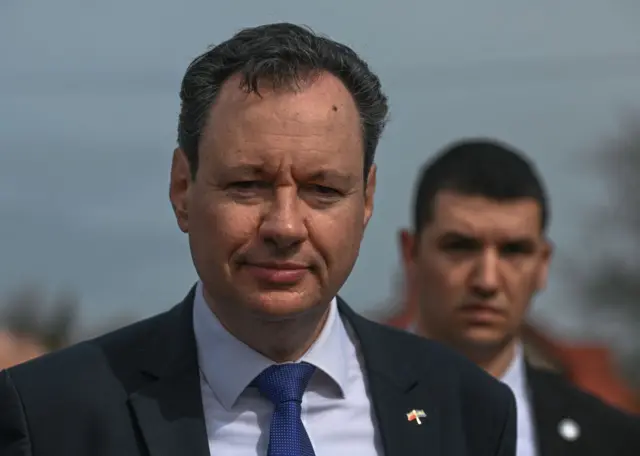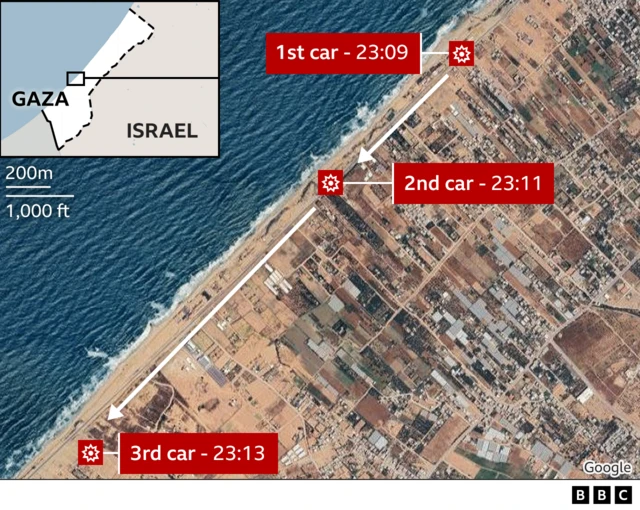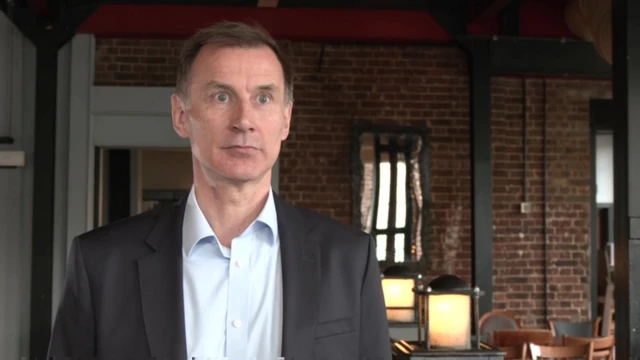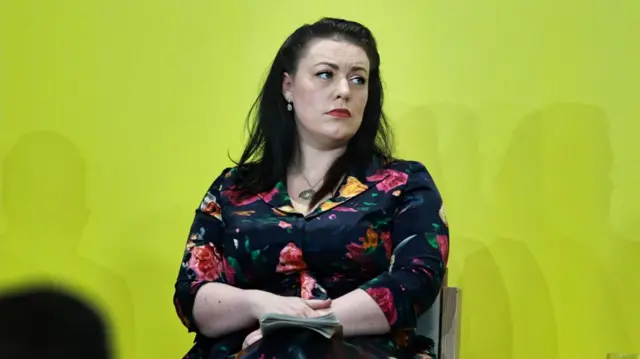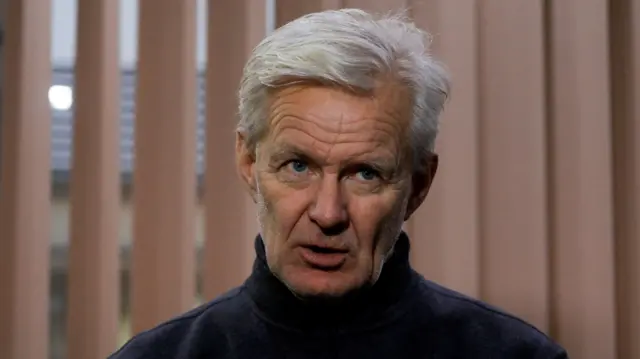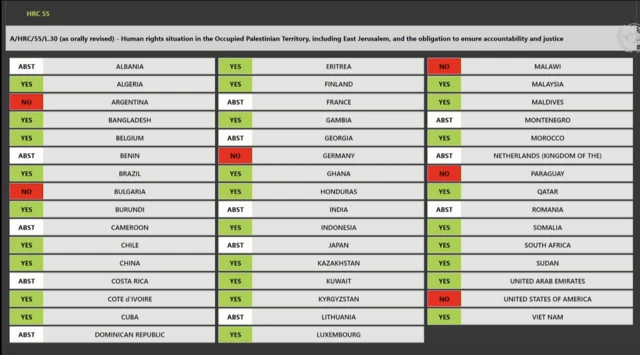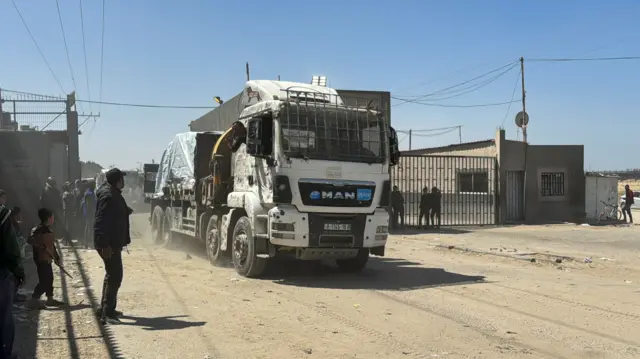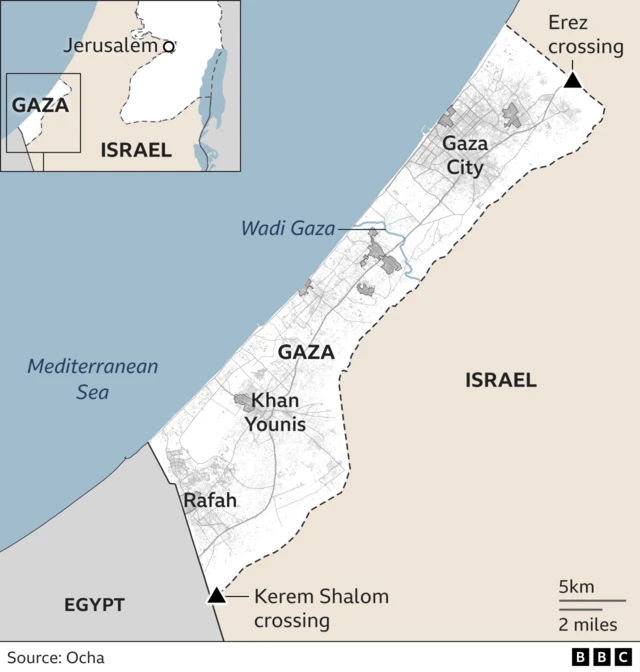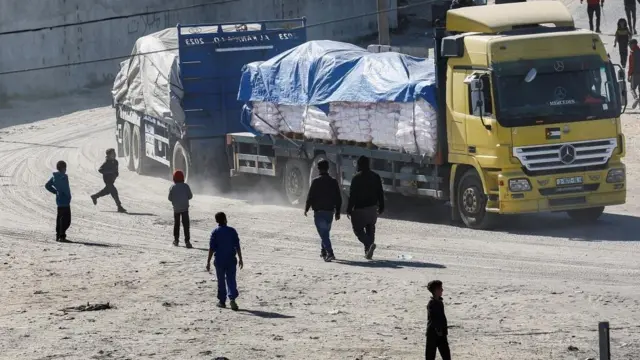Germany says 'no more excuses' on letting aid into Gazapublished at 13:06 BST 5 April 2024
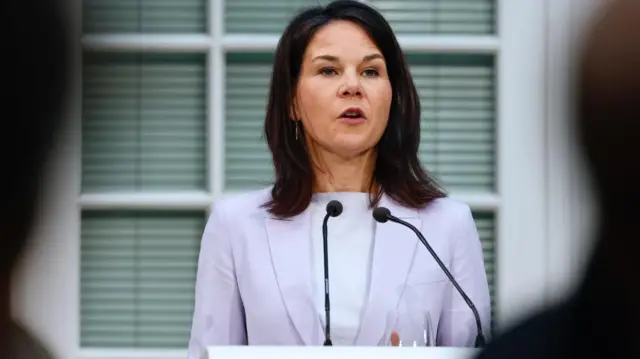 Image source, EPA-EFE/REX/Shutterstock
Image source, EPA-EFE/REX/ShutterstockIsrael can give "no more excuses" over delays to aid getting into Gaza, German Foreign Minister Annalena Baerbock says.
It comes after Israel announced it approved the reopening of the Erez crossing in northern Gaza. The port of Ashdod in southern Israel will also temporarily be used.
"The people in Gaza need every aid package now... We expect the Israeli government to implement its announcements quickly," Baerbock writes in a post on X, external, formerly known as Twitter.
"No more excuses."

